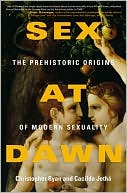Engaging Cultural Differences: The Multicultural Challenge in Liberal Democracies
What does tolerance mean and how does it work in practice, in such countries as the U.S., Germany, France, India, Norway, and South Africa? Twenty-five scholars—all but one from the U.S.—from the fields of law, anthropology, psychology, and political theory explore how liberal democracies do and should respond legally to differences in cultural and religious practices of minority group residents. The 21 essays explore the processes that create diversity, forms of cultural accommodation other...
Search in google:
What does tolerance mean and how does it work in practice, in such countries as the U.S., Germany, France, India, Norway, and South Africa? Twenty-five scholars all but one from the U.S. from the fields of law, anthropology, psychology, and political theory explore how liberal democracies do and should respond legally to differences in cultural and religious practices of minority group residents. The 21 essays explore the processes that create diversity, forms of cultural accommodation other than group status or rights, ways in which minority groups position themselves in relation to universal human rights claims, and the contrasting conceptions of group differences as they affect institutional and legal practices. Annotation c. Book News, Inc., Portland, OR Foreign Affairs A fresh attempt by scholars to tackle a central question of Western democracy: How should liberal societies respond to the cultural and religious practices of minority groups? In examining this challenge, the essays underscore the dilemmas inherent in efforts to balance commitments to liberty and equal rights with the goals of security, national identity, and community. Some chapters look at how immigrant groups import practices that challenge the limits of diversity and tolerance. Examples include the struggles over group rights in India, challenges by Muslims to traditions of church and state in France and Germany, and attempts by whites to "civilize" marriage customs in postapartheid South Africa. Other chapters ask how different traditions of law and culture can shape the accommodation of outside groups, suggesting that minorities are more easily accommodated in liberal democracies where cultural and religious differences can reside in a private sphere sharply separated from the public realm. These essays reveal complexities, dilemmas, and varied national experiences — quite an accomplishment in itself.
AcknowledgmentsContributorsIntroduction: Engaging Cultural Differences1Pt. IOne Nation, Many Cultures: Contested Practices and Group Status in Liberal Democracies17Ch. 1Everything You Ever Wanted to Know About Assimilation But Were Afraid to Ask19Ch. 2Living with Multiculturalism: Universalism and Particularism in an Indian Historical Context43Ch. 3Legislating Religious Freedom: Muslim Challenges to the Relationship Between Church and State in Germany and France63Ch. 4Civilizing the Natives: Customary Marriage in Post-Apartheid South Africa81Ch. 5Immigrants, Agency, and Allegiance: Some Notes from Anthropology and From Law99Ch. 6Citizenship on Trial: Nadia's Case128Pt. IICultural Accommodation and Its Limits145Ch. 7Accommodation and Coherence: In Search of a General Theory for Adjudicating Claims of Faith, Conscience, and Culture147Ch. 8The Free Exercise of Culture: Some Doubts and Distinctions165Ch. 9The Culture of Property177Ch. 10In Defense of Culture in the Courtroom194Ch. 11"What About Female Genital Mutilation?" and Why Understanding Culture Matters in the First Place216Ch. 12About Women, About Culture: About Them, About Us252Pt. IIIThe Universal Human Rights Debate: Mobilization and Resistance269Ch. 13Between Nationalism and Feminism: Indigenous Women, Community, and State271Ch. 14Neither Victim Nor Rebel: Feminism and the Morality of Gender and Family Life in a Hindu Temple Town288Ch. 15Circumcision Debates and Asylum Cases: Intersecting Arenas, Contested Values, and Tangled Webs309Ch. 16From Skepticism to Embrace: Human Rights and the American Anthropological Association from 1947 to 1999344Pt. IVConceptions of Difference and the Differences They Make363Ch. 17Cultural Models of Diversity in America: The Psychology of Difference and Inclusion365Ch. 18The Micropolitics of Identity-Difference: Recognition and Accommodation in Everyday Life396Ch. 19Plural Society and Interethnic Relations in Guinea-Bissau417Ch. 20Freedom of Speech and Freedom of Silence: An Analysis of Talking as a Cultural Practice432Ch. 21Color Blindness as a Barrier to Inclusion: Assimilation and Nonimmigrant Minorities453Index473
\ Foreign AffairsA fresh attempt by scholars to tackle a central question of Western democracy: How should liberal societies respond to the cultural and religious practices of minority groups? In examining this challenge, the essays underscore the dilemmas inherent in efforts to balance commitments to liberty and equal rights with the goals of security, national identity, and community. Some chapters look at how immigrant groups import practices that challenge the limits of diversity and tolerance. Examples include the struggles over group rights in India, challenges by Muslims to traditions of church and state in France and Germany, and attempts by whites to "civilize" marriage customs in postapartheid South Africa. Other chapters ask how different traditions of law and culture can shape the accommodation of outside groups, suggesting that minorities are more easily accommodated in liberal democracies where cultural and religious differences can reside in a private sphere sharply separated from the public realm. These essays reveal complexities, dilemmas, and varied national experiences — quite an accomplishment in itself.\ \ \ \ \ BooknewsWhat does mean and how does it work in practice, in such countries as the U.S., Germany, France, India, Norway, and South Africa? Twenty-five scholarsall but one from the U.S.from the fields of law, anthropology, psychology, and political theory explore how liberal democracies do and should respond legally to differences in cultural and religious practices of minority group residents. The 21 essays explore the processes that create diversity, forms of cultural accommodation other than group status or rights, ways in which minority groups position themselves in relation to universal human rights claims, and the contrasting conceptions of group differences as they affect institutional and legal practices. Annotation c. Book News, Inc., Portland, OR (booknews.com)\ \








